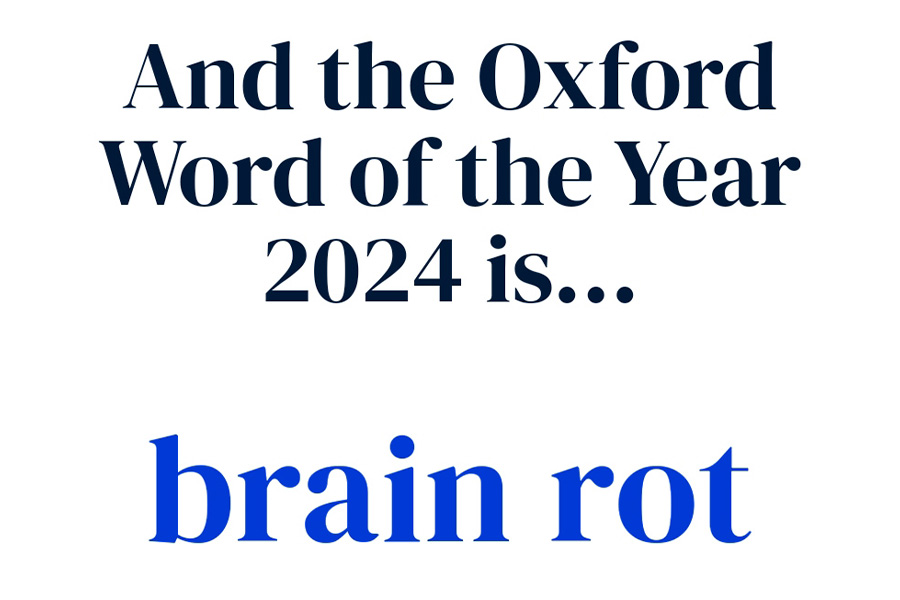The Oxford Word of the Year 2024 is somewhat ominous. More than 37,000 people voted for ‘brain rot’ out of the six words that language experts had chosen. Considering language data together with the public input, Oxford decided on this word — or expression — the use of which had increased 230% between 2023 and 2024. Brain rot is
the deterioration of a person’s mental and intellectual state owing to the excessive consumption of low-quality material mostly from social media and the internet. The phrase expresses society’s concern regarding habits of the constant watching of, say, Instagram reels or TikToks. Brain rot is said to be both the cause and effect — presumably the creation of low-value content and the result of its overconsumption can be described by it. This is closely related to another term much in use recently — ‘digital detox’ — which describes rest from social media and the internet in order to revive the brain and rid the consumer of the habit of passive watching.
Brain rot is not a real ‘thing’ in the medical sense; it is the imagined damage done to intellectual capacities and mental health of consumers. It is for a similar reason that the television was called the ‘idiot box’. But social media is far more addictive and dangerous. Depression and the sense of isolation caused by the excessive use of Facebook, for example, became a matter of grave concern for doctors and psychologists. Brain rot points to the way technology is shaping thought and personalities and eating up time and energy. But the concept is not new. Henry David Thoreau used it first in 1854 in Walden in association with potato rot; his definition
was, perhaps, less sinister. By brain rot he referred to people’s preference for simple ideas and explanations rather than complex ones or for those that could be approached in multiple ways. That is something the world has become used to: a recent experiment with poetry from great writers and by Artificial Intelligence proved this. But it could mean that passionate lovers of social media nurture an inclination already present.
It is ironical that the internet, which is of immeasurable use, and its allied programmes and applications are the product of unusually brainy persons. Yet these may be causing brain rot, especially in children and young people. It may be an equal irony that the phrase became popular first on the internet among the young people who comprise the larger share of its victims. There is perhaps a humorous self-awareness among them which might prove to be a saving grace. But the general concern raises other questions. How will the increasing use of AI affect these habits of passive consumption? How will the appreciation and understanding of the greatest art, whether poetry or painting or anything else, fare in this new world? The answers may not be blowing in the wind exactly, but they certainly hang in the balance.











